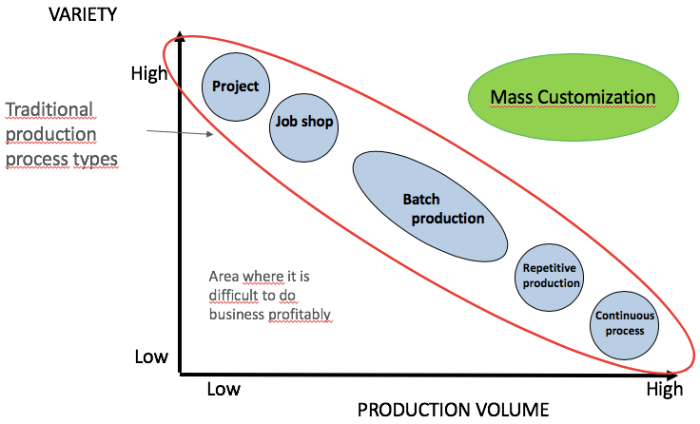Which of the following statements is true of mass customization? This question delves into the transformative concept of mass customization, a manufacturing and retail strategy that empowers customers with the ability to personalize products and services to their specific needs.
As we explore the key principles, benefits, challenges, and implementation strategies of mass customization, we uncover its potential to revolutionize industries and enhance customer satisfaction.
Mass customization offers a unique blend of personalization and efficiency, enabling businesses to cater to diverse customer demands while maintaining production scale. By understanding the nuances of mass customization, organizations can harness its power to gain a competitive edge and create a truly customer-centric experience.
1. Overview of Mass Customization

Mass customization is a manufacturing and business strategy that allows businesses to produce customized products on a mass scale. It involves using flexible production processes and technologies to create products that are tailored to individual customer needs and preferences.
The key principles of mass customization include:
- Customer involvement:Customers are actively involved in the design and production process, providing input and feedback.
- Flexibility:Production processes and technologies are designed to be flexible and adaptable, allowing for quick changes and variations in product design.
- Modularity:Products are designed using modular components, which can be easily assembled and customized to meet specific customer requirements.
FAQ Insights: Which Of The Following Statements Is True Of Mass Customization
What is the primary benefit of mass customization?
Mass customization allows businesses to meet the unique needs of individual customers while maintaining production efficiency, leading to increased customer satisfaction and loyalty.
What is a key challenge associated with mass customization?
Implementing mass customization requires a high level of technological and operational complexity, including the integration of flexible manufacturing systems and robust supply chain management.
How can businesses successfully implement mass customization?
Successful implementation of mass customization involves carefully evaluating different strategies, such as modular design, postponement, and mass customization platforms, and selecting the approach that best aligns with the business’s capabilities and customer needs.

